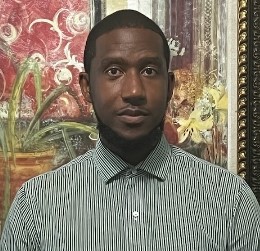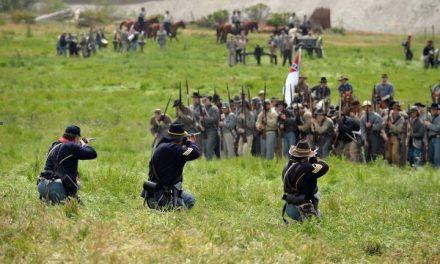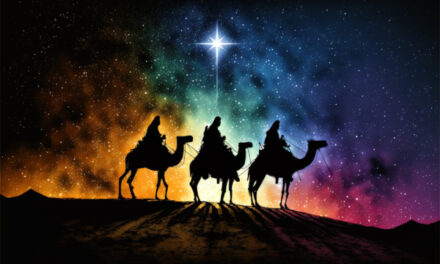Exile, The Remnant, & The Church
By Cody McCain
Burke County
About a month ago, I was reading Zephaniah 2 – a seemingly obscure chapter of the minor prophets – and I stumbled across two verses that stood out to me. The first, which was verse 7, stated, “That land will belong to the remnant of the people of Judah; there they will find pasture. In the evening they will lie down in the houses of Ashkelon. The Lord their God will care for them; he will restore their fortunes.” Verse 9 also jumped off the page as I read it, which states, “Therefore, as surely as I live, declares the Lord Almighty, the God of Israel, surely Moab will become like Sodom, the Ammonites like Gomorrah—a place of weeds and salt pits, a wasteland forever. The remnant of my people will plunder them; the survivors of my nation will inherit their land.” When I began to ask the Holy Spirit for the practical application of these two scriptures, He highlighted one word that appears in both verses: REMNANT. The dictionary definition of the word “remnant” defines this term as “a small surviving group.” Historically speaking, the book of Zephaniah – like many other prophetic books of the Old Testament – contains prophetic oracles from God to the prophet Zephaniah (during the reign of King Josiah) that warned of Israel’s impending exile (because of disobedience and idolatry) and their eventual restoration to the land of Judah. The exile took place around 586 BCE when King Nebuchadnezzar of Babylon entered Jerusalem, captured the city, and carried off the majority of the Jews to Babylon (which is in present-day southern Iraq); 2 Kings 25 provides the historical account of this event in great detail. The Lord – through the prophet Jeremiah – declared that the Babylonian captivity would last seventy years (Jeremiah 25:11). An interesting fact to note is that Jeremiah 29:11 – a scripture that we often quote concerning God’s plan for our lives – was written during the time of the exile, instructing Israel to submit to the rule of the Babylonian king.
Exile
I began to study concerning the everyday life of the Jews during the Babylonian and I was surprised to learn that their lives actually were not as bad as we may have thought. According to an article in the Jerusalem Post written by Daniel K. Eisenbud, a discovery of over 100 palm-sized stone tablets – written in the ancient Akkadian script – detailed the daily lives of the Jews in captivity; these tablets are now on display at Jerusalem’s Bible Lands Museum. Curator of the exhibit Filip Vukosavovic stated:
Technically not slaves, Nebuchadnezzar allowed the Judeans in Babylonia to become merchants or assist in administering his growing kingdom. They were free to go about their lives; they weren’t slaves…Nebuchadnezzar wasn’t a brutal ruler in that respect. He knew he needed the Judeans to help revive the struggling Babylonian economy.[1]
These tablets are further detail that Jews in Babylon paid taxes, accumulated credit, and engaged in the trade of commodities. In essence, the Jews were able to prosper materially during their time of captivity. There is another key aspect of the Babylonian captivity that we also must consider: the evolution of the Jewish religion. Being in Babylon forced the Jews to make adjustments and changes to their religious system, being that they no longer had access to the temple, the place where God said, “I have chosen and consecrated this temple so that my Name may be there forever” (2 Chronicles 7:16). As a result, Jews in Babylon began to move towards the creation of the synagogue (which exists to this day), where the Levitical sacrificial system involving animals was substituted for prayers. The Encyclopedia Britannica states:
The Babylonian Jewish community, in which the cream of Judah lived, had no sanctuary or altar (in contrast to the Jewish garrison of Elephantine in Egypt); what developed in their place can be surmised from new postexilic religious forms: fixed prayer; public fasts and confessions; and assembly for the study of the Torah.[2]
The Remnant
Following the completion of the seventy years of captivity that God decreed for the Jews, God used the famous Persian King Cyrus the Great to issue an edict around 539 BCE declaring the Jews to be free. 2 Chronicles 36:22-23 records Cyrus’ proclamation of the end of captivity in the following verses:
“In the first year of Cyrus king of Persia, in order to fulfill the word of the Lord spoken by Jeremiah, the Lord moved the heart of Cyrus king of Persia to make a proclamation throughout his realm and also to put it in writing: This is what Cyrus king of Persia says: The Lord, the God of heaven, has given me all the kingdoms of the earth and he has appointed me to build a temple for him at Jerusalem in Judah. Any of his people among you may go up, and may the Lord their God be with them.”
The main objective that the Jews were to accomplish upon their return to Jerusalem would be the rebuilding of the temple and the city’s walls. This is where it gets interesting, once Cyrus issued this proclamation, not all of the Jews were willing to return to Jerusalem to participate in the restoration. In the same article that I referenced earlier, Flip Vukosavovic also stated – concerning the Jews that chose to remain in Babylon -, “Still many others remained in Babylonia, he said, and created a vibrant Jewish community that lasted two millennia and didn’t return to Israel until the 1950s, when many in the Diaspora moved from Iraq, Persia, Yemen, and North Africa to the newly created state.”[3] The remnant consisted of those Jews who decided to return to Jerusalem to participate in the restoration. Ezra 2:64 records that over 42,000 Jews chose to make the long journey of roughly 900 miles! Upon their arrival back to the city, Ezra 3 records that they began to restore the system of worship (according to the Law) and laid the foundations of the temple for rebuilding.
The Church
Now you must be wondering, “Where does the church of Jesus Christ fit into all of this?” The Lord began to show me the striking comparisons between the events of the exile and present-day events. The church, much like Israel, has entertained “other gods” resulting in a state of spiritual exile. Beginning in the mid to late 1980s, a theology known as “name it, claim it” teaching began to emerge which eventually morphed into what is now known today as the “prosperity Gospel.” This false gospel places a great deal of emphasis on self-promotion/advancement, materialism, hyper-grace, and entertainment. Prosperity teaching has permeated the Western church and in many other places globally. As a result, the church has been placed into “spiritual exile” where we have become comfortable with prospering materially (as the Jews in Babylon were) while simultaneously compromising the standards of God’s Word! We have become comfortable with pouring our God-given resources into ungodly environments and systems rather than for kingdom advancement! As I stated earlier, while in Babylon, the Jews began to substitute the sacrificial system with other elements that were out of line with what God required. What was the foundation of the sacrificial system that made it so significant? The answer is very simple: BLOOD. The Lord instituted many of the burnt offerings to atone for sin, and as Hebrews 9:22 states, “…without the shedding of blood, there is no forgiveness of sins.” Today we hear many messages that encourage, motivate, and even push us to achieve, but very few on redemption, the blood, sin, and our accountability to God. I have even personally witnessed that in many churches now, it is quite common for worship services to conclude without giving an invitation for salvation! Therefore, an environment of faithful “church attendees” has been created instead of a kingdom of blood-washed, Spirit-filled believers! Amid this exile, God has decreed that those believers that are willing should rise up and bring about restoration to the Body. These individuals are the remnant. The remnant will consist of those – anointed by the power and fire of God – that refuse to remain in “Babylon” and will arise to bring the church back to the foundation, which is Jesus Christ! Is everyone a part of the remnant? The answer is No! There will be many who will choose to stay in “Babylon” and ignore the admonition of the remnant. Remnant believers will operate out of the 5- fold ministry gifts (the apostolic, the prophetic, the evangelistic, the pastoral, and the teaching anointings) to bring order, revival, and vibrant advancement to the kingdom of God! The remnant is willing to make the necessary sacrifices to take this journey with God to the place that He is requiring for this very hour!
I don’t know about you, but I definitely want to be a part of the remnant, that aids in bringing the Body of Christ back to her first love, which is Jesus! It is time that we recognize where we are, repent, and go back to the foundation of the Word of God and the power of the Holy Spirit. As Romans 8:19 states, “For the creation waits in eager expectation for the children of God to be revealed.” The world waits for the revelation of who we are in Christ Jesus! My prayer is that we would all develop a remnant mindset and a remnant focus and that we would pave the way for the return of our Lord and Savior Jesus Christ!
[1] Eisenbud, Daniel K. “Ancient Tablets Reveal Daily Life of Exiled Jews in Babylon 2,500 Years Ago.” The Jerusalem Post | JPost.com, Last modified February 3, 2015. https://www.jpost.com/Not-Just-News/Ancient-tablets-reveal-daily-life-of-exiled-Jews-in-Babylon-2500-years-ago-389864.
[2] Dimitrovsky, Haim Zalman, Louis H. Feldman, Lou Hackett Silberman, Gerson D. Cohen, Arthur Hertzberg, and Salo Wittmayer Baron. “Judaism.” Encyclopedia Britannica. Last modified February 8, 2019. https://www.britannica.com/topic/Judaism.
[3] Eisenburg, Daniel K. Ibid.
________________________________________
Cody T. McCain Sr. is the owner, funeral director, and embalmer of McCain Funeral Home & Cremations, LLC located in Morganton. He, along with his wife Shaunda, have a passion to serve their community with the love, integrity, and excellence of Christ.
________________________________________
Read more great Christian News HERE.







